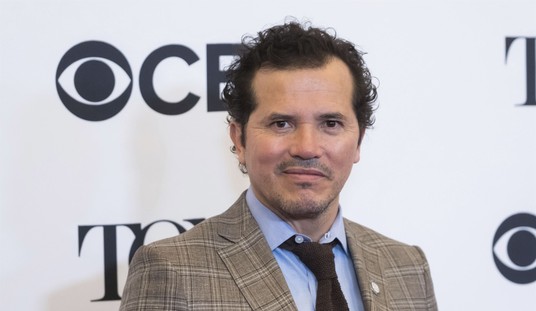FBI Director James Comey was called out by Senator Rand Paul (R-KY) this week on the growing problem of what I have termed “Known Wolf” terrorism — an act of terror committed by someone already known to law enforcement.
During a Senate Homeland Security Committee hearing on Tuesday, Comey said the FBI is reviewing the missed opportunities in both the recent NY/NJ bombing and the mass killing in Orlando in June. However, as seen in the exchange below between Comey and Senator Paul, the FBI director seemed unconcerned about the problem.
But he really should be — because missed chances by the FBI might be America’s ONLY terror problem.
Virtually EVERY Islamic terror attack under President Obama’s watch was committed by a “Known Wolf” suspect.
Four such incidents already this year. A dozen incidents during the Obama administration.
And virtually NO OTHER ATTACKS at all.
Here’s Comey and Paul:
As former federal prosecutor and PJ Media columnist Andrew McCarthy noted last week, for years the Obama administration has pushed a narrative that Islamic terrorists operating in the U.S. were “lone wolves” — striking out of nowhere and without warning. But this simply was not true. In virtually every case, these “lone wolves” were already on law enforcement’s radar — and in some cases, had even been placed on terror watchlists.
As I’ve noted here at PJ Media going back to October 2014, the “lone wolf” canard was spun by the Obama administration to exonerate themselves whenever a terror attack occurred.
The positive news is that they won’t be able to do it anymore.
The “Known Wolf” terrorism problem is finally being addressed by Congress: Senator Jim Lankford (R-OK) is in the process of conducting a six-month investigation into the breakdown of those dozen cases.
This past Saturday, a New York Post editorial noted my identification and two-year documentation of the “Known Wolf” problem in the West:
FBI Director James Comey notes that searching for lone wolves is like “looking for needles in a national haystack.” But Rahami was less a lone wolf than what Pat Poole at PJ Media calls a “known wolf” — i.e., someone who had been flagged by authorities but then forgotten.
Poole cites at least eight other such “known wolves” — including the Underwear Bomber, the Fort Hood shooter and perps in the Orlando nightclub massacre and Boston Marathon bombing as well as jihadis in Garland, Texas; Little Rock, Ark.; Seattle; West Orange, NJ; and Columbus, Ohio.
In fact, there have been a dozen.
Below, familiarize yourself with all of the “Known Wolf” terrorism cases on the Obama administration’s watch.
And be sure you grasp the key point:
The United States might not be suffering from terror — AT ALL — if our law enforcement agents had not been hamstrung by the Barack Obama/Hillary Clinton “politically correct” approach to monitoring Muslim suspects.
They placed the sensitivities of Muslim Americans ahead of public safety. Not their rights — law enforcement already operates knowing that rights must be respected to successfully win a later prosecution in court.
Not their rights. Just their sensitivities.
We KNEW about virtually EVERY terrorist. But FAILED TO ACT IN TIME on virtually every terrorist.
(See the next page for the full list, including details of each FBI failure.)
NEW YORK-NEW JERSEY: After stabbing a family member in 2014, NY-NJ bomber Ahmad Rahami’s father told New Jersey police that his son was a terrorist. This prompted the FBI’s Joint Terrorism Task Force to open an assessment, and Rahami was flagged in the FBI’s Guardian system.
The arresting officer told the court: Rahami was likely “a danger to himself and to others.”
No charges were filed. At some point a neighbor contacted authorities, concerned that associates of Rahami were trying to procure explosives.
ROANOKE, VA: In August 2016, Wasil Farooqui attacked a couple outside their apartment complex, shouting “Allahu Akhbar” and repeatedly stabbing the couple. He was caught when he arrived at the hospital to have his own injuries treated.
The media has played up his claims to have been “hearing voices” leading up to the attack, treating it as a case of mental illness.
He might have been mentally ill — but he had definitely been on the FBI’s radar.
The FBI was aware of him after he had traveled to Germany and Turkey and had attempted to enter Syria — likely to join ISIS.
But he was never charged for the attempt.
ORLANDO: The mass killer who attacked the Pulse nightclub in June 2016, Omar Mateen, had been interviewed by the FBI on THREE separate occasions.
The open preliminary investigation in 2013 lasted 10 months, after Mateen had told others about mutual acquaintances shared with the Boston bombers and had made extremist statements.
He was investigated again in 2014 for his contacts with a suicide bomber who attended the same mosque.
At one point, Mateen was placed on TWO separate terrorism databases.
He was later removed from them.
COLUMBUS, OH: In February 2016, Mohamed Barry attacked patrons with a machete at an Israeli-owned deli. He later charged police while shouting “Allahu Akhbar,” at which time he was shot and killed.
Barry had already been investigated by the FBI for making extremist statements. Barry had been entered on a federal watch list. It appears he was still on it until the time of the attack — his car had been flagged by authorities.
But no further investigation occurred before his rampage.
GARLAND, TX: In May 2015, Elton Simpson and Nadir Soofi were killed in a shootout with law enforcement outside a convention center where they had planned to attack a free-speech Muhammad cartoon drawing contest.
Simpson had been known to the FBI for years. He had been involved in a terror cell in Phoenix.
He had even been prosecuted for his involvement.
A judge found that Simpson had lied to the FBI about his plans overseas — but ruled that there was not sufficient evidence to prove Simpson intended to commit terrorism.
Simpson was subsequently placed on the no-fly list.
Then the FBI opened up another investigation after Simpson made statements online in support of the Islamic State.
Remarkably, evidence in a related terrorism trial revealed that the FBI not only had a paid informant inside the cell, but that the informant was aware of the attack plans and was reportedly on the scene at the time of the attack.
COLUMBUS, OH: In May 2014, Zakia Nasrin, her husband Jaffrey Khan, and Zakia’s younger brother Rasel Raihan traveled to the capital city of the Islamic State — Raqqa, Syria — to join the terror group. According to U.S. intelligence officials, Rasel was killed there.
Jaffrey and Rasel were already known as extremists by the FBI after an informant’s tip.
Suspicions were further raised when Jaffrey and Zakia claimed to have “lost” their passports while in Kenya. Rasel admitted to friends that he had been interviewed by the FBI.
The report also claims that they were, indeed, on a terror watch list.
At the height of ISIS recruitment of Muslim-Americans, the FBI took no measures to prevent their travel to Syria.
SEATTLE, WA and NEWARK, NJ: From April-June 2014, Ali Muhammad Brown went on a cross-country killing spree. He murdered three victims in Washington and one in New Jersey. He claimed the murders were “vengeance” for U.S. actions in the Middle East.
As a teenager, Brown reportedly trained at one of the first-known U.S. terror training camps.
He was later arrested in 2004 — as part of a Seattle terror cell.
Prosecutors said that, at the time of his killing spree, Brown was on the terror watch list.
BOSTON: Prior to the bombing of the Boston Marathon by Tamerlan and Dzhokhar Tsarnaev in April 2013 that killed three people and injured 264 others, the FBI had been tipped off.
Russian intelligence warned that Tamerlan was “a follower of radical Islam.” Initially, the FBI denied ever meeting with Tamerlan. They later claimed that they followed up on the lead, couldn’t find anything in their databases linking him to terrorism, and quickly closed the case.
After the second Russian warning, Tamerlan’s file was flagged by federal authorities demanding “mandatory” detention if he attempted to leave or re-enter the United States.
But Tsarnaev’s name was misspelled when it was entered into the database.
An internal FBI report of the handling of the Tsarnaev’s case — unsurprisingly — saw the FBI exonerate itself.
NORTHWEST AIRLINES: Umar Farouk Abdulmutallab boarded Detroit-bound Northwest Flight 253 on Christmas Day 2009 with 289 other passengers wearing an underwear bomb intended to murder them all.
He was well-known to U.S. intelligence officials before he boarded.
Only one month before the attempted bombing, Abdulmutallab’s father had actually gone to the U.S. embassy in Nigeria and met with two CIA officers.
He directly told the CIA that he was concerned about his son’s extremism.
Abdulmutallab’s name was added to the Terrorist Identities Datamart Environment (TIDE) database.
However, his name was not added the FBI’s Terrorist Screening Database. Or even the no-fly list. So he boarded a plane.
When asked about the near-takedown of the flight and these missteps, then-Homeland Security Secretary Janet Napolitano remarkably told CNN that “the system worked.”
The only “system” that worked in this incident: a culture that values bravery, already instilled in the passengers who acted.
FORT HOOD: Within days of Major Nidal Hasan’s November 2009 shooting rampage at Fort Hood that killed 13, news reports indicated that the FBI was aware of his email correspondence with al-Qaeda cleric Anwar al-Awlaki nearly a year before he launched his terror attack.
The FBI was quick to issue a press release absolving themselves of responsibility. They claimed the email exchange was innocuous and consistent with Major Hasan’s religious research.
To repeat: the FBI claimed that the act of emailing with a global leader of the world’s most notorious terror group could actually be innocuous.
Of course, the emails intercepted by the FBI were made public in 2012 — three years later. They revealed clear indications of Major Hasan’s terrorist intent.
Further, Hasan repeatedly gave PowerPoint briefings to his fellow Army colleagues that were known to be highly controversial.
The briefings foretold Hasan’s spree: they threatened insider attacks by enlisted Muslims if they weren’t released as “conscientious objectors.”
No action was taken, and 13 servicemen and servicewomen — though trained, they were disarmed, as the base was and is a “gun-free” zone but for perimeter security — lost their lives.
NEW YORK CITY: On September 10, 2009, Najibullah Zazi drove his car into Manhattan loaded with backpack bombs. He intended to bomb the New York City subway during rush hour.
Zazi had received training from al-Qaeda in Afghanistan in 2008, and orders to conduct a domestic terror attack. British intelligence subsequently intercepted an email between a senior al-Qaeda leader and Zazi inquiring about when he was going to conduct the attack. They alerted American officials.
The FBI then began conducting surveillance on Zazi, and followed him as he drove from Colorado to New York. During this time, he lost the FBI tail (requiring FBI agents to fly to St. Louis to catch up with him), and was stopped twice by police.
Zazi then had his car stopped and searched on the George Washington Bridge by New York and New Jersey Port Authority police at the request of the FBI.
The explosive devices in the trunk were not discovered. Because the trunk was never searched.
Most likely, the FBI failed to obtain a search warrant.
As Mitch Silber noted in an op-ed in the Wall Street Journal, the FBI allowed Zazi to drive into New York City with the bomb.
Spooked by the stops and the search — and then by a tip from an imam, who told Zazi that authorities were asking about him — Zazi disposed of the bomb materials in a toilet at a local mosque.
He flew back to Colorado, where he was arrested several days later.
Despite the FBI’s repeated bungling of the case, the bureau publicly tried to pin the blame on the NYPD.
LITTLE ROCK: Carlos Leon Bledsoe gunned down two U.S. Army soldiers in front of a Little Rock recruiting center in June 2009, killing Pvt. William Long.
The FBI had interviewed Bledsoe within the prior year. Twice.
Agents interviewed Bledsoe in Yemen, and again after his return to the U.S. in 2008.
After the shooting, FBI officials said that Bledsoe was motivated by “political and religious motives.”
But the FBI refused to identify the incident as a terrorist attack.
—————————————
In virtually every single Islamic terror attack inside the U.S. since Obama took office, excepting Chattanooga and San Bernardino, both last year, the suspects were extremists already known to the FBI.
And in the case of San Bernardino shooter Tashfeen Malik, she had been vetted by the U.S. government in June 2014, passed, and was granted a K-1 visa. However, the FBI believes she had already been radicalized by the time she received the visa.
After two years of reporting here at PJ Media on the ongoing “Known Wolf” terror problem — and the outrageous “Lone Wolf” myth employed by the Obama administration and the media — it seems that some members of Congress are finally investigating the reality of just how badly the politically correct approach to countering domestic terrorism has failed.
We already do a terrific job of spotting potential terrorists.
But the procedures in place under President Obama and supported by Hillary Clinton — procedures which place sensitivities over safety — could hardly have been more catastrophic, incompetent failures.
————————————————-
Below are links to Poole’s prior coverage of the ‘Known Wolf’ scandal:
Oct. 24, 2014: ‘Lone Wolf’ or ‘Known Wolf’: The Ongoing Counter-Terrorism Failure
Dec. 15, 2014: Sydney Hostage Taker Another Case of ‘Known Wolf’ Syndrome
Jan. 7, 2015: Paris Terror Attack Yet Another Case of ‘Known Wolf’ Syndrome
Feb. 3, 2015: French Police Terror Attacker Yesterday Another Case of ‘Known Wolf’ Syndrome
Feb. 15, 2015: Copenhagen Killer Was yet Another Case of ‘Known Wolf’ Terrorism
Feb. 26, 2015: Islamic State Beheader ‘Jihadi John’ Yet Another Case of ‘Known Wolf’ Terrorism
Apr. 22, 2015: Botched Attack on Paris Churches Another Case of “Known Wolf” Terrorism
May 4, 2015: Texas Attack Is Yet Another Case of ‘Known Wolf’ Terrorism
June 26, 2015: France’s Beheading Terrorist Was Well-Known By Authorities
July 16, 2015: Report: Chattanooga Jihadist Was Yet Another ‘Known Wolf’ Terrorist, Anonymous Feds Dispute
Aug. 22, 2015: European Train Attacker Another Case of ‘Known Wolf’ Terrorism
Oct 14, 2015: Yet Again: Turkey, Israel Terror Attacks Committed by “Known Wolves”
Nov 14, 2015: One Paris Attacker Was Previously Known to Authorities, Marks Fifth ‘Known Wolf” Attack in France This Year
Feb 16, 2016: Machete Attack in Ohio Yet Another Case of ‘Known Wolf’ Terrorism
May 16, 2016: News Reports Yet Another Case of ‘Known Wolf’ U.S. Terrorists
June 12, 2016: Orlando Night Club Attack by “Known Wolf” Terrorist Previously Investigated by FBI
July 14, 2016: Senate Intelligence Committee to Investigate “Known Wolf” Terrorism Problem
July 26, 2016: ISIS Suspect in Normandy Priest’s Killing Already Known to French Authorities
August 10, 2016: Canadian ‘Known Wolf’ Terrorist Planned Suicide Bombing of Major City, Killed in Overnight Police Operation
August 19, 2016: Man Who Stabbed Rabbi Thursday in Strasbourg, France Involved in Prior Attack
Sept. 20, 2016: NY-NJ Bomber Ahmad Khan Rahami Already Known to Law Enforcement Authorities









Join the conversation as a VIP Member